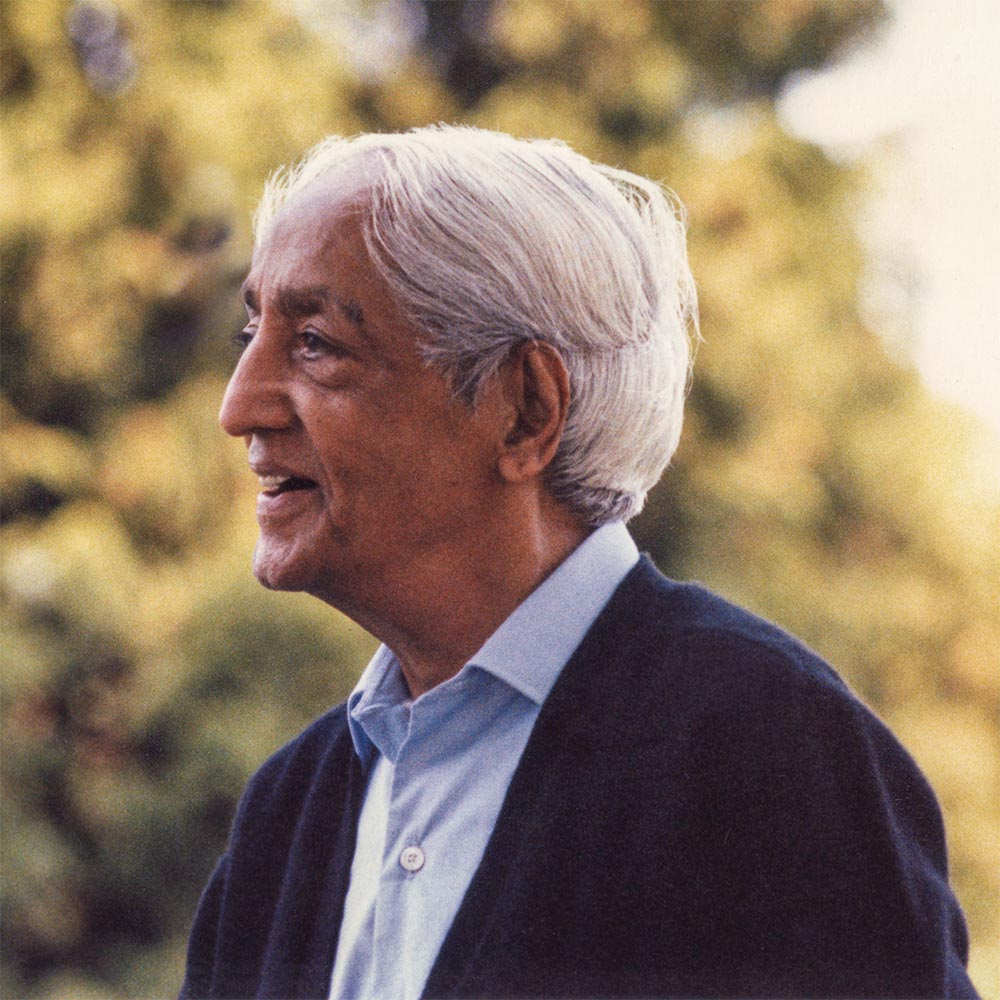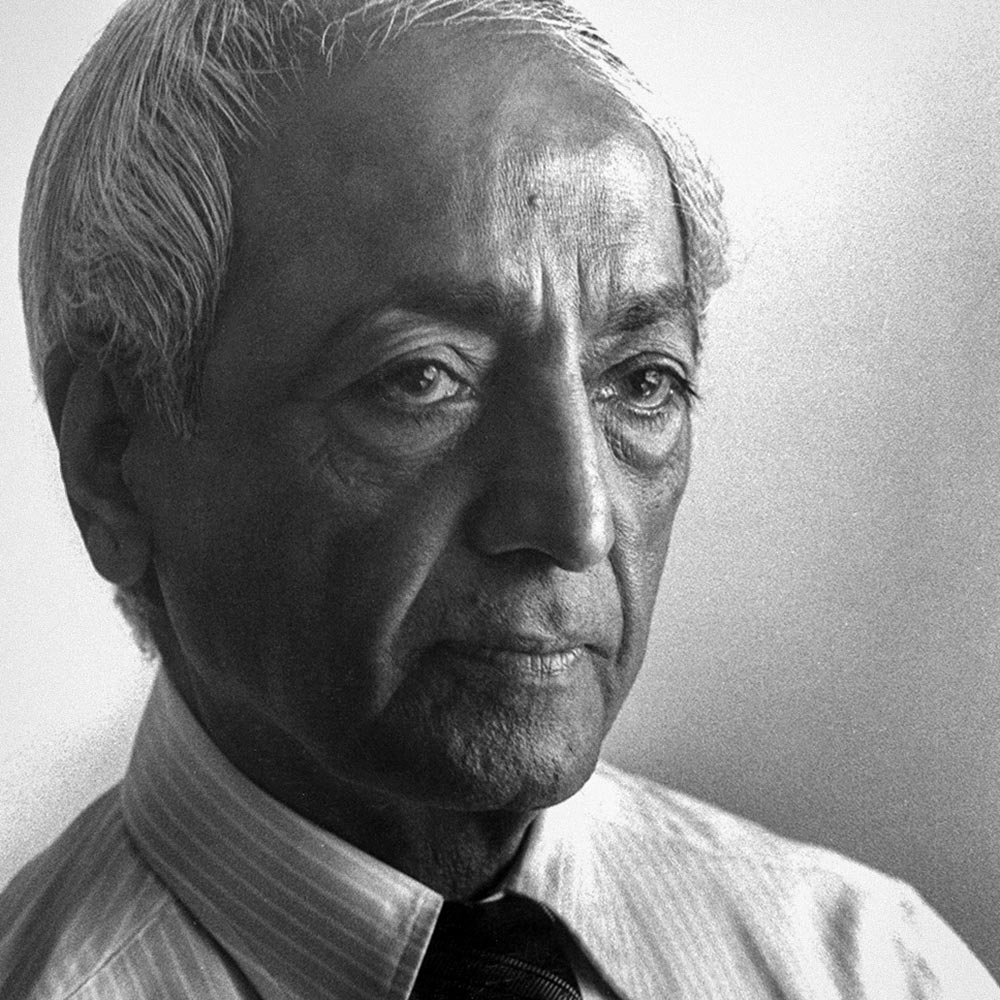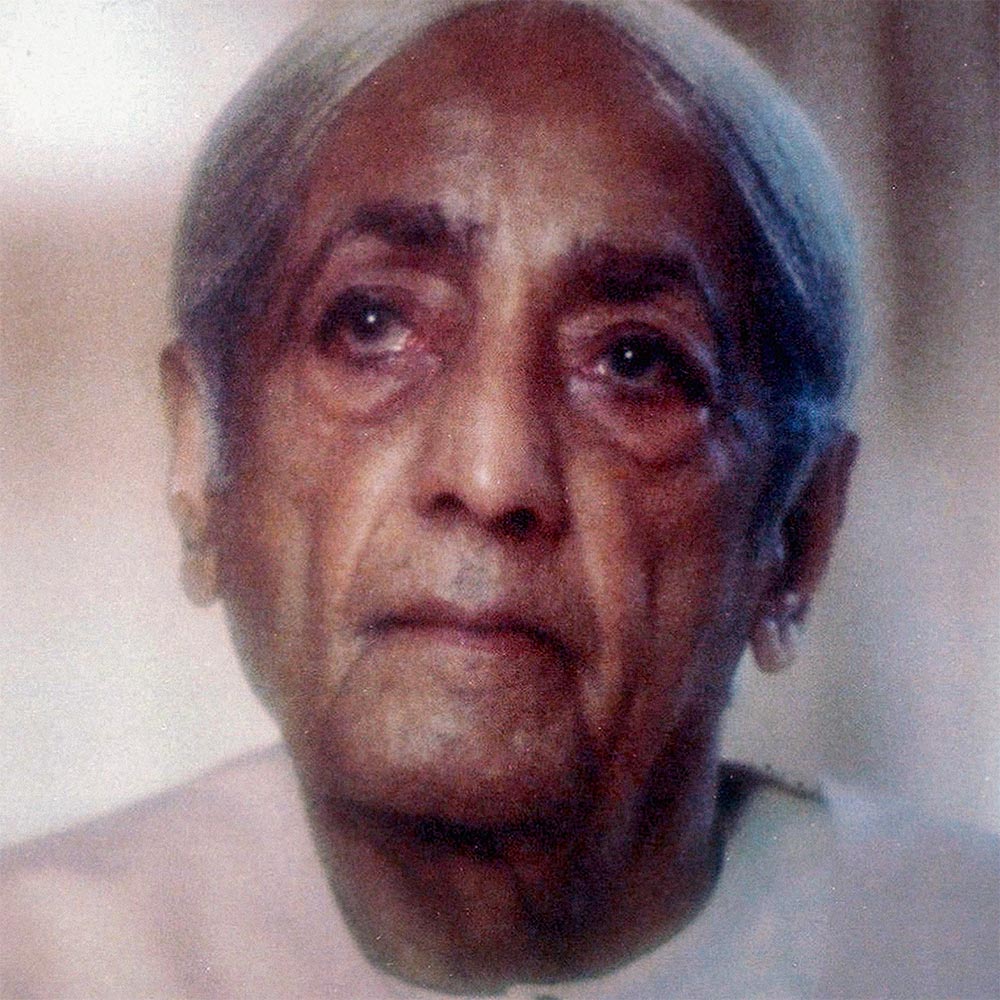Can you listen without interpreting, without your prejudices interfering – listen as you may listen to the song of a bird?
Krishnamurti, Beyond Violence
Read More
Listening is a complete act; the very act of listening brings its own freedom.
Krishnamurti, Commentaries on Living 2
Read More
If you can deeply listen with ease, with a certain felicity, you will find an astonishing transformation taking place in your heart and mind.
Krishnamurti, Think on These Things
Read More
If you listen comprehensively so that there is no division and no resistance, you will find that the mind can pay complete attention to anything, without effort.
Krishnamurti, Think on These Things
Read More
To listen there must be attention, and where there is resistance there is no attention.
Krishnamurti, Commentaries on Living 3
Read More
We never look, but through a screen of words, explanations and prejudices; we never listen, save through judgments, comparisons and remembrances.
Krishnamurti, Commentaries on Living 3
Read More
Listening is an art not easily come by, but in it there is beauty and great understanding.
Krishnamurti, Commentaries on Living 1
Read More
Listen, and insensitivity will tell you its story; do not translate or act, but listen without interruption or interpretation right to the end.
Krishnamurti, Commentaries on Living 1
Read More
There is a different way of living, something totally new; which means listening completely.
Krishnamurti, The Ending of Time
Read More
Listening to the story of ‘what is’ brings its own liberation. It is truth that liberates, not the effort to be free.
Krishnamurti, Commentaries on Living 1
Read More
Listen with full attention, so that in the very act of listening, old memories, old habits, accumulated traditions, will all be wiped away.
Krishnamurti, The Impossible Question
Read More
When you want to listen to music or look at a picture you love, which you have feeling for, what is the state of your mind?
Krishnamurti, The First and Last Freedom
Read More
On the radio one can listen endlessly to every kind of music, one can hear plays and the news. There need be no conversation, no exchange of thought, for the radio does almost everything for you.
Krishnamurti, Commentaries on Living 1
Read More
There is great delight in listening to music; it may quieten and pacify your nerves by its rhythm and quality of sound; it may carry you away to distant places, far away, and in that there is great pleasure. But that pleasure does not detract from your vital interest.
Krishnamurti, The Awakening of Intelligence
Read More
I listen to the radio because music makes me happy, it takes me away from myself; books and knowledge are also a very convenient escape from myself. And on all these things we depend.
Krishnamurti, Commentaries on Living 1
Read More
These quotes only touch on the many subjects Krishnamurti inquired into during his lifetime. His timeless and universal teachings can be explored using the Index of Topics where you will find texts, audio and video related on many themes. Another option is to browse our selection of curated articles or more short quotes. Krishnamurti’s reply when asked what lies at the heart of his teachings can be found here. Many Krishnamurti books are available, a selection of which can be explored here. To find out more about Krishnamurti’s life, please see our introduction and the biography. We also host a weekly podcast, and offer free downloads. Please visit our YouTube channel for hundreds of specially selected shorter clips. Below, you can learn more about Krishnamurti and our charity which he founded in 1968.

Who Was Krishnamurti?
J. Krishnamurti (1895-1986) is widely regarded as one of the greatest thinkers and religious teachers of all time. He spoke throughout the world to large audiences and to individuals, including writers, scientists, philosophers and educators, about the need for a radical change in mankind. Referring to himself, Krishnamurti said:
He is acting as a mirror for you to look into. That mirror is not an authority. It has no authority, it’s just a mirror. And when you see it clearly, understand what you see in that mirror, then throw it away, break it up.
Krishnamurti was concerned with all humanity and held no nationality or belief and belonged to no particular group or culture. In the latter part of his life, along with continuing to give public talks, he travelled mainly between the schools he had founded in India, Britain and the United States, which educate for the total understanding of man and the art of living. He stressed that only this profound understanding can create a new generation that will live in peace.
Krishnamurti reminded his listeners again and again that we are all human beings first and not Hindus, Muslims or Christians, that we are like the rest of humanity and are not different from one another. He asked that we tread lightly on this earth without destroying ourselves or the environment. He communicated to his listeners a deep sense of respect for nature. His teachings transcend man-made belief systems, nationalistic sentiment and sectarianism. At the same time, they give new meaning and direction to mankind’s search for truth. His teaching is timeless, universal and increasingly relevant to the modern age.
I am nobody. It is as simple as that. I am nobody. But what is important is who you are, what you are.
Krishnamurti
Krishnamurti spoke not as a guru but as a friend. His talks and discussions are based not on tradition-based knowledge but on his own insights into the human mind and his vision of the sacred, so he always communicated a sense of freshness and directness, although the essence of his message remained unchanged over the years. When Krishnamurti addressed large audiences, people felt that he was talking to each of them personally, addressing their own particular problem. In his private interviews, he was a compassionate teacher, listening attentively to those who came to him in sorrow, and encouraging them to heal themselves through their own understanding. Religious scholars found that his words threw new light on traditional concepts. Krishnamurti took on the challenge of modern scientists and psychologists and went with them step by step, discussing their theories and sometimes enabling them to discern the limitations of their theories.
Krishnamurti left a large body of literature in the form of public talks, writings, discussions with teachers and students, scientists, psychologists and religious figures, conversations with individuals, television and radio interviews, and letters. Many of these have been published as books, in over 60 languages, along with hundreds of audio and video recordings.

The Krishnamurti Foundation
Established in 1968 as a registered charity, and located at The Krishnamurti Centre, Krishnamurti Foundation Trust exists to preserve and make available Krishnamurti’s teachings.
The Foundation serves a global audience by providing worldwide free access to Krishnamurti videos, audio and texts to those who may be interested in pursuing an understanding of Krishnamurti’s work in their own lives.
In describing his intentions for the Foundations, Krishnamurti said:
The Foundations will see to it that these teachings are kept whole, are not distorted, are not made corrupt.

